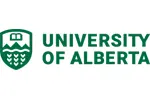

The Department of Biological Sciences offers programs leading to the degrees of Master of Science and Doctor of Philosophy. It strives to develop scholars familiar with literature in their field, capable of identifying new problems and new directions of endeavour in their field, and competent with the methods of data collection and analysis essential to do research. Students will fulfil these objectives through several forums: a supervised research program, coursework, participation in seminar programs, and defending their dissertation.
The Department has research laboratories and instructional facilities for 250-300 graduate students. There are facilities for digital image processing, electron and confocal microscopy, analytical chemistry, molecular biology, fermentation, biotechnology, DNA synthesis and sequencing, cultivation of microbial cells and cells of yeasts, plants, insects and mammals. Facilities include large holding tanks for aquatic animals, and controlled environment rooms including an extensive greenhouse complex. Off-campus facilities include the Devonian Botanic Garden and mycology herbarium, several field stations including the Meanook Biological Research Station and Ellerslie Plant Genetics Station, all near Edmonton, and the Bamfield Marine Sciences Centre on Vancouver Island. Extensive reference collections are available for research with microfungi, vascular and cryptogamic plants as well as vertebrates and invertebrates, including major collections of fishes, fossil plants and vertebrates, insects and parasites.
There are six areas of specialization within the Department: Ecology; Microbiology and Biotechnology; Molecular Biology and Genetics; Plant Biology; Physiology, Development and Cell Biology; and Systematics and Evolution. Students either register in one of these areas of specialization for their program or, with permission of the supervisor and approval of the Associate Chair (Graduate Studies), register toward a degree of MSc or PhD with specialization in Biological Sciences. Declared specialization in one of the six research interest areas can be indicated on a student's thesis title page, degree diploma, and transcript.
All potential applicants are encouraged to first correspond with academic staff in whose research laboratories they might want to study. Additional information is found at Biological Sciences (see Graduate Studies - For Applicants).
Learn more about Biological Sciences, MSc, PhD - at University of Alberta
Visit course webpageAll students entering the graduate program receive financial support for at least the first two years and four months of a full-time MSc program, and the first five years of a full-time PhD program, at a minimum guaranteed rate. Contact the Department for the current minimum.
The Department's minimum admission requirements are a 4-year undergraduate degree with an admission GPA of at least 3.3 on the 4-point scale from the University of Alberta, or an equivalent qualification and standing from a recognized institution. The admission GPA will be calculated on the last *60 of graded coursework completed, or on the equivalent of the last two years of full-time graded coursework.
Where applicable, applicants must provide proof of English Language Proficiency (see English Language Requirement). Any one of the following is acceptable:
Applicants must identify a potential supervisor willing to provide supervision.
Applicants must have the minimum guaranteed funding, attained through one or a combination of:
Applicants are also required to submit the following:
The University of Alberta offers a wide ranges of scholarships to international students. You will be evaluated for these scholarships when you apply for admission. Your eligibility will be based on your high school admission average at the time of your admission offer. We'll assess you for a match to the following three scholarships. If you are eligible for an admission-based scholarship we will contact you directly!
You can also apply for scholarships based on your application, including the President’s International Distinction Scholarship, awarded annually to 25 international students, worth up to CAN $120,000.
To find out more about scholarships click here.
There are 370 other courses listed from University of Alberta. A selection of these are displayed below:
University of Alberta main campus location is shown on the map below:
Find out more about studying in Canada